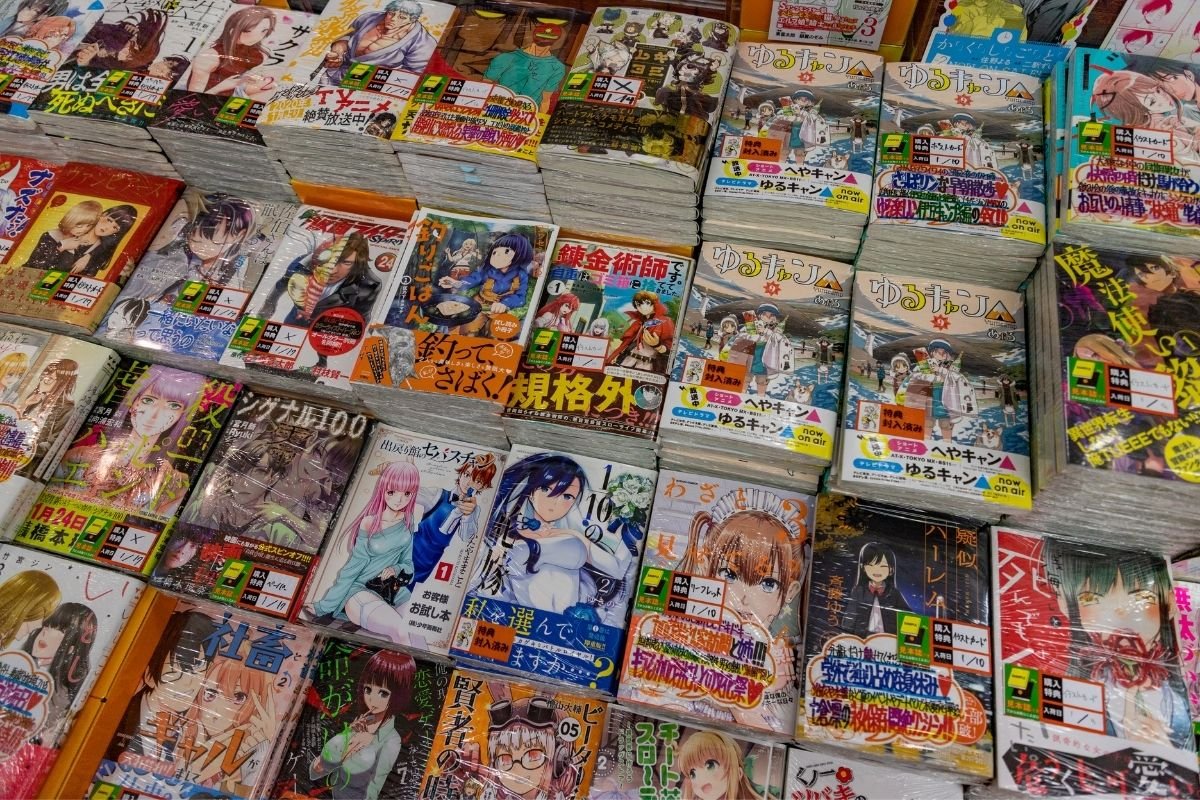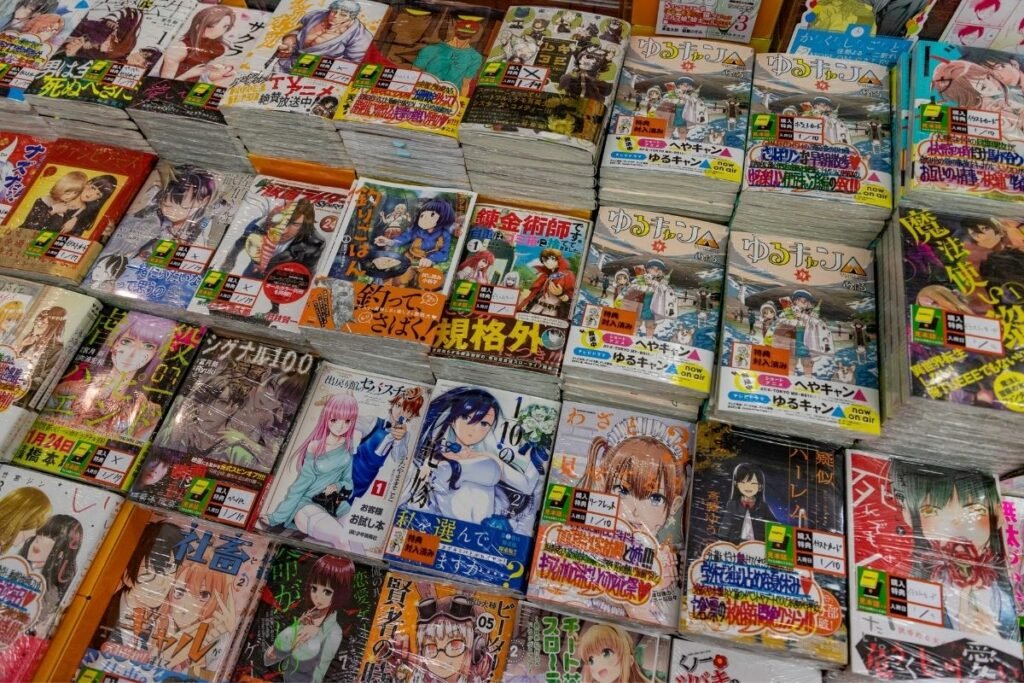The world of anime and manga is wide-reaching and encapsulates many famous stories and franchises.
As such, it can often be difficult to keep up with all of the various terminologies, and exactly what they all mean.

One very common terminology thrown about in the world of anime and manga is ‘Doujinshi’.
You’re probably reading this now because you’ve encountered this term before, and now you’re wondering just what it means.
Well, you’ve come to the perfect place, because we are going to go through exactly what the term means, as well as answer some of your biggest burning questions!
Read on below to get started!
What Is A Doujinshi?
The term ‘Doujinshi’ actually refers to a form of self-published print work which is written and illustrated by an independent artist or writer, or a group of writers and artists.
The defining characteristic of a doujinshi is that it is self-published, in the same way that a ‘Zine’ is printed, bound, and sold independently by the artists and writers.
However, doujinshi tend to be quite professionally printed, and this is thanks to the greater public access to printing services in Japan when compared to other countries across the world.
Doujinshi also tend to be derivative of existing franchises and characters, with many doujinshi focusing on specific franchises or characters as a selling point and as a way for the creators to express their love for them.
Doujinshi can often be erotic or sexual in nature, with many doujinshi being dedicated to ‘shipping’ certain characters, which is the act of implying a romantic or sexual relationship between two existing fictional characters.
This explains why they tend to be so immensely popular within fandom culture.
What Does The Word Doujinshi Actually Mean?
The word ‘Doujinshi’ is actually made up of two unique Japanese words to create a portmanteau.
The term ‘Doujin’, in Japanese, translates directly to ‘same person’. Thus the term ‘Doujin’ in ‘Doujinshi’ refers to the work borrowing existing characters.
‘Shi’ is a Japanese Suffix (meaning it’s attached to the end of a word) that refers to a periodical publication.
How Do Doujinshi Avoid Copyright?
Though not all doujinshi are based on existing franchises or works, the vast majority are, which means that a prevalent question in the community is how they avoid repercussions from the copyright holders of such franchises or characters.
In order to stave off copyright strikes or litigation, many doujinshi publishers will choose to do very small print runs which allows them to remain very much under the radar so that the copyright holders remain largely unaware.
This also has implications on the rest of the doujinshi community, however, especially those that collect and covet doujinshi, as many works based on popular franchises, or works created by popular artists have smaller print runs, which makes those same publications very rare, and thus worth a fairly large sum of money.
Why Are Doujinshi So Popular?
Doujinshi are largely successful and popular because they already have pre-established fanbases ready to purchase and read them, due to many being based on popular existing franchises.
Doujinshi also allow the creators to directly involve themselves with the franchises and express their love for them.
This is why they prove to be so popular within fandoms because they allow superfans to come up with alternate realities and alternate stories for the characters, as well as pairing different characters in romantic ways that would never be seen in the official material.
How Are Doujinshi Sold?
Doujinshi tend to be sold via very small means, such as direct sales with fans both in person or online and not through retail stores, as the copyrighted material contained within could cause trouble for stores that stock them.
Doujinshi are also commonly sold at doujinshi conventions which have been running regularly on an annual basis since the 1980s.
One of the largest doujinshi conventions in the world is Comiket, which is held annually at the Big Sight convention center in Tokyo.
At these events, thousands of doujinshi artists and writers sell their wares to hundreds of thousands of eager fans who also trade amongst one another.
Thus, though it would be difficult to make a dependable living from selling doujinshi, many doujinshi artists are able to make a solid profit from selling their works.
When Did Doujinshi First Begin?
Doujinshi actually has a fairly extensive history, which may surprise you!
Some of the first doujinshi were believed to have been published around 1874, however, at this time, doujinshi were not based on parodies of existing works of literature but instead were independently published novels which allowed a new generation of independent writers to find success and have their work reach a wider audience.
Many doujinshi were published in magazines, whereas some were self-published in small print runs to then be distributed personally by the author.
As time moved on, the original concept of doujinshi eventually began to die off and became replaced with our more modern understanding, thanks to the proliferation of photocopiers and printing services.
Nowadays, some popular doujinshi are able to find great success by being published online, wherein the need for print is nonexistent, and copyright is much easier to stave off.
To Conclude
As you can now see, ‘Doujinshi’ simply refers to self-published illustrated works that exist as a creative outlet for fans of fictional works to express their love for said work.
They are published via small print runs to avoid copyright law, or published online, where they can be read by many more people.
Frequently Asked Questions
What Is A Fujoshi?
A Fujoshi is a term used to describe female fans of yaoi manga that feature gay character pairings.
Do Doujinshi Make Money?
It would be difficult for a doujinshi writer or artist to make a living from their work, but many have managed to build a sizable profit from selling their works.
What Is Weebs?
A ‘Weeb’, or a ‘Weeaboo’, refers to a western person who admires Japanese culture, especially anime and manga (see also ‘What Was The First Anime Ever Made?’).
The term is often used in a derogatory way, but in some ways has been reclaimed by anime and manga fans.
- What Is a Maiko? - July 13, 2025
- What Does Domo Arigato Mean? - July 12, 2025
- What Does Naruto Mean? - July 12, 2025









